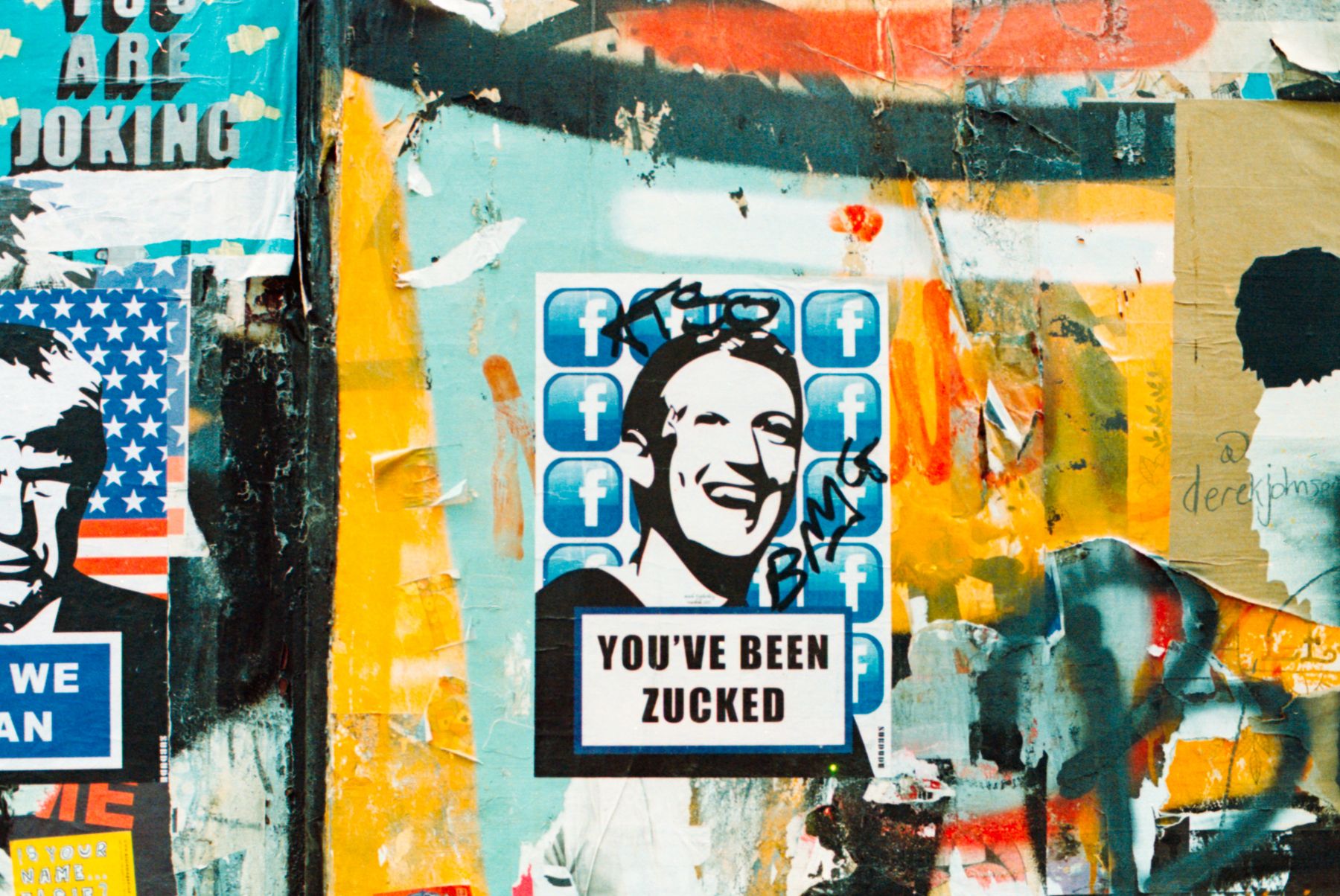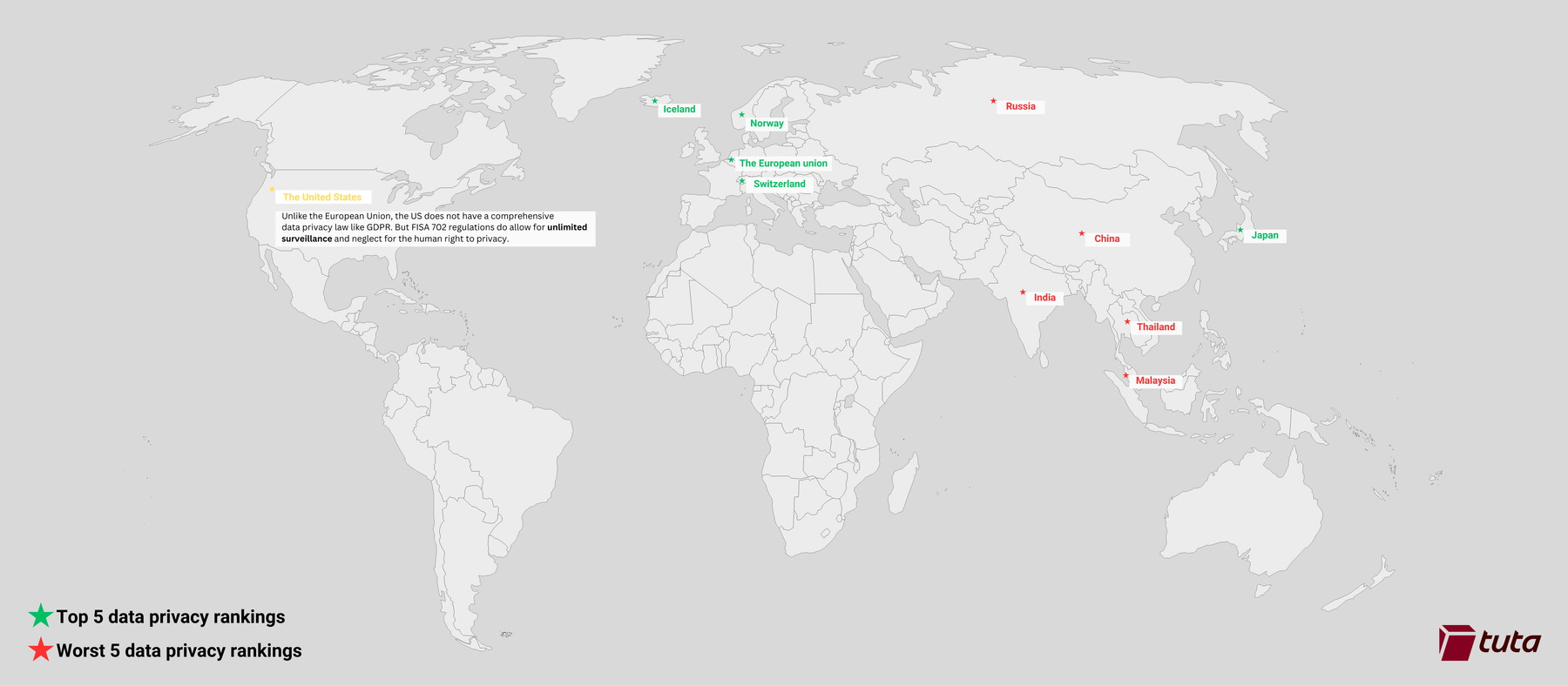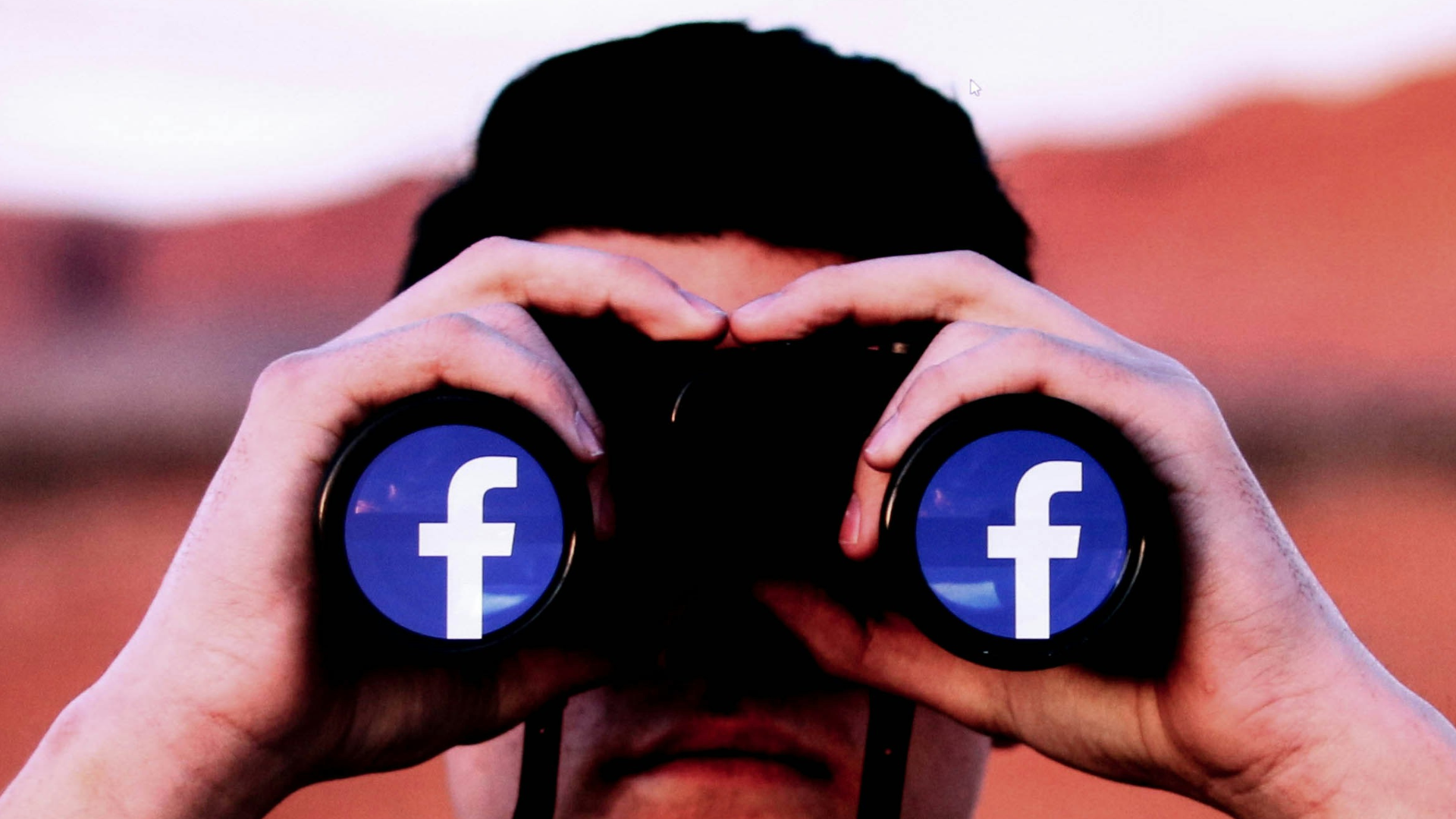All The Data Facebook Collects - And How To Stop This
Want to know what data Facebook collects about you? In this guide we outline what data Facebook collects about its users and how they use it.
Quick Summary: What data does FaceBook collect and track?
- All your profile information
- Any actions you’ve performed on the platform
- How you engage with content
- Your political preferences
- Your device’s data
- All your browsing data
- Your current and past locations
- Your purchasing habits online and in stores
It’s 2009, Facebook is the most exciting platform around and of course, you have to get an account. Over the years, it has served as a platform to keep up with friends, connect with people from the past, and a way to share your life with others. It’s now 2025, you’ve been an active user for years, sharing pictures, liking posts, and watching videos. While sharing your life with the world, you’ve also become aware of Facebook’s multiple data breaches and scandals. While Facebook posed as a platform to connect with others at the start, it has become smarter, offered more features, and become more greedy for your data and driving profits.
It’s no surprise that you’re left wondering what Facebook knows about you, and what data they collect about you.
What data does Facebook collect about its users?
Facebook was created to allow you to share information about your life with your friends and family, so it’s not surprising that Facebook knows everything you’ve posted and shared on your page. What you might not know, is that Facebook knows A LOT more than what you’ve willingly posted. Facebook’s data collection has become so sneaky and invasive that without you knowing, they’ve managed to creep into every corner of your online life.
It’s understandable that Facebook knows just about everything you’ve ever done on their social network, but what’s worrying is that they also know what you’ve been doing online, off their site. Below we explain what data Facebook collects about its users and what they do with this user data.
Related If you have a teenager who has a Meta Teen’s Account, they are still being tracked and a lot of their data is also collected.
Facebook knows all your profile information and activities: every click, your name, everything you’ve ever shared
Facebook tracks every click you make on its platform. Because you created a personal account you’ve given them your name, date of birth, and email address. If you use Facebook Messenger, they know your phone number too. In addition to these personal details, they have all your publicly shared messages, posted statuses, comments, and likes.
In short, because you use their service, you’ve agreed to give Facebook your information. Facebook knows who you’ve added as a friend, friend requests you’ve received as well as who you message. Additionally, Facebook has access to and tracks the metadata attached to any files you upload to the platform. For example, they are able to determine your location from the metadata attached to the pictures you upload.


Whether you’re an active user or have never signed up for Facebook, the social media giant has managed to gain access to your data. One might say, we’ve all been Zucked!
Related Meta found guilty of collecting Flo app users’ menstrual data.
Facebook collects your technical data: it knows your phone brand, installed apps, your behavior, and clicks
You may have thought Facebook collecting metadata was the most reach it had on your private life, but you’re wrong. In addition to this metadata, they keep track of far more technical data. Because of this technical data tracking, they know a lot of information about the device you use. Facebook knows your phone brand, what operating system you use, your installed apps, device IDs, Wi-Fi, Bluetooth, and cell tower signals, and stored cookies.
Other technical data that is shared with Facebook includes your phone’s default settings, language, IP address, internet speed, time zone, and any devices connected to the same network. Because of this, Facebook has probably figured out who you live with if they also use Facebook and the same network.
While Facebook can figure out who you live with, it can also trace your device’s actions. Every time you scroll the app, open a video, or read two minutes of a boring article they are app tracking your activity. Meta does this to see how much time you spend looking at advertisements and posts, and from this app tracking, the tech giant makes huge profits off your data.
Your Facebook friends and Facebook partners also reveal data about you
You may think you’re solely in charge of the information Facebook gets about you but that isn’t the case. When a friend tags you in a photo, posts or comments, or mentions you in a status, your activities, interests, and connections could be disclosed. When your friends comment and interact with your posts, you are providing insights into your relationships, preferences, and activities.
Facebook also has an extensive network of partners that work together and share user information. If a company collaborates with Facebook they give them the data which is added to Facebook’s database. Because of this, Facebook knows which websites you’ve visited, how you interact with other sites, and your online behavior. The company has so much data, trends, and information on you, it’s no wonder advertisers want it. The more detailed your profile is, the better for advertisers, and the higher the profits for Facebook. As you become the product, Facebook and the advertisers on the Meta platform win.
Facebook’s partner network is vast, and this raises concerns for user security. Each time you use a platform that allows you to login with Facebook or every time you click on a website that uses Facebook pixels (usually found on news websites) this data is sent to Facebook. This extensive network linked to Facebook then raises concern for user security, because it means that there is almost nothing that Facebook doesn’t know about your online activity.
Even if you’ve never signed up for Facebook, it still knows about you.
Additionally, even if someone has never had a Facebook account the big tech is still able to collect their data, and escaping this data collection as a non-Facebook user is quite impossible. As a non-user, Facebook can still collect your data mainly from your browsing history and from friends. Each time you surf the internet, any site that uses Facebook’s advertising pixel or a social API linking to Facebook sends data about the site visits to the big tech giant. With these Facebook tools being used by other sites, they are able to collect your data whether you’re a Facebook user or not.
Beyond advertising alone, Facebook has begun offering a login service for other platforms including dating sites. By choosing to “Login with Facebook” you are granting them access to even more data about you.
Another scary way Facebook gets your data if you’ve never signed up for an account is through its contact upload feature. Many people choose to upload their contacts to Facebook, as a way to find friends to connect with – but this creates alarming privacy concerns for you - the contact. If someone shares their contact list with Facebook, as a contact on their phone – your data including your phone number is shared with the social media giant.
Yes, Facebook knows where you are and where you’ve been
Facebook is known for its extensive and intrusive methods of collecting location data of its users, which poses a significant threat to you and your safety. It uses GPS data, Wi-Fi points, Bluetooth signals, and other sources. Facebook can accurately pinpoint your location, even when your GPS is disabled. Additionally, their ability to figure out locations from images posted on the platform adds another layer of surveillance.
The Facebook app on your smartphone has a detailed location history. This history log reveals where you live, work, where you go for your daily activities as well as shows insights into your family’s movements, like your child’s school location. This location data is used to create targeted advertising. Some of the ads you see pop up on your screen are targeted at you based on your locations and activities.
A big problem is that many Facebook users unknowingly expose sensitive aspects of their lives, like their locations. The fact that this happens and people don’t realize the extent to how much Facebook knows and tracks them is unacceptable. While a major revenue source for Facebook is from their targeted advertising, it raises major concerns about privacy and security. Why should your sensitive user data be exploited for revenue purposes?
GDPR implications for Facebook
Because of the different laws around the world, Facebook’s strategy for information gathering is different depending on the region and country you’re situated in. In the European Union, the General Data Protection Regulation (GDPR) means certain data is automatically protected - this is one reason the Choose EU movement is growing especially in tech. This protected information includes political affiliation, religious beliefs, and health information. Even if you choose to share this information, the GDPR automatically protects it. Additionally, EU authorities banned Facebook’s owner Meta from using EU citizens’ personal data for advertising. This was a big step forward toward protecting EU citizens’ basic human rights.
While the EU has upped its data and protection laws, little protection is present for users in other parts of the world. Users in the United States have different degrees of security and protection. Unfortunately, if you live in a state with weak privacy laws, you’re at risk of Facebook using your sensitive data for marketing purposes.
In areas where Facebook has access to your sensitive data, they may know your political preferences (crazy right) which helps them find out which advertisements are more effective. For example, the same product is tailored to its target group to be more attractive to that set of users. This means that if you aren’t protected by local privacy laws, Facebook is able to use any information it can gather about you, and use this to influence you in ways you can’t comprehend.


The Map above shows the top five countries ranked for the best data privacy protections, and the worst five countries with little to no data privacy protection.
Facebook collects big data
Does Facebook sell your data? Yes! Facebook is involved in big data collection, this means that they gather and analyze huge amounts of data generated by Facebook users. In Q3 of 2023, Facebook reportedly had 3.049 billion monthly active users, making it the biggest app in the world, so you can’t comprehend the unimaginable amounts of information it harvests about its users. The data they collect includes user demographics, online behavior, interactions and interests.
How does Facebook use your data?
Through this big data collection, they provide targeted advertising to the user. Because Facebook sells this data to advertisers, they can target adverts to specific groups more likely to buy the products.
Facebook uses this big data to personalize the content that its users see on their news feeds, pages you may like, and friend suggestions. Facebook pushes content that is aligned with the user’s preferences and activities. While big data collection could enhance the user experience, and benefit Facebook and advertisers, it raises concern knowing the potential dangers associated with big data collection.
Facebook’s privacy policy states that they allow users to access, erase, port and rectify data with a simple click. However, in its privacy policy it also says, “We decide how long we need information on a case-by-case basis.” So for how long Facebook keeps your information isn’t defined for all.
Click here to read more on Facebook’s data privacy policy.
When it comes to Facebook’s marketing campaigns and policies, they often portray themselves as allowing you, the user to be in control of your data. It’s worth noting that this is very often privacy washing and simply clever wording to make you feel in control of your data.
Worried about your data privacy? Google is just as bad as Meta, but now you take back control of your data and join the growing group of people choosing to De-Google.
Facebook uses your data to train AI
We already knew that Facebook collects our data to sell to advertisers, but now it even wants to use EU citizens’ Facebook and Instagram data to train Meta AI. Unfortunately, for US citizens, MetaAI was introduced in the US in 2023. Since then, Meta has been collecting data dating as far back as 2007 from its Facebook and Instagram users and incorporating it into their generative AI features. For people in the US, there’s no way to opt out of this.
Meta has also turned to Europe and wants our data to train artificial intelligence (AI). Facebook and sister company Instagram, plan to use your public posts and images to train Meta’s AI tools. In 2024, Meta, Facebook’s parent company started informing its users in the EU and UK that new privacy policy changes would come into effect on June 26th. What the changes to the privacy policy meant was that user information could be used to “develop and improve” Meta’s AI products. So if you use Facebook or Instagram, anything you’ve ever posted including images, picture captions, stories, and comments could be used to train their Large Language Models (LLMS).
Within the EU, Meta has faced a lot of backlash from both people and regulatory agencies over plans to train their AI models with EU citizen’s Facebook and Instagram data, because of this its initial plan was put on hold. Of course, Meta did not accept this, and recently it proudly announced on its blog that it is now rolling out Meta AI in the EU. This means that for EU citizens Meta AI’s intelligent chat function will now be available on Facebook, Instagram, Messenger, and WhatsApp - whether you like it or not.
Where do you go from here?
After reading this article you’re probably wondering why Facebook still has so many active users. And why so many people still use Meta’s range of applications like WhatsApp and Instagram. Well, like you, (before reading this article) most users are ignorant and unaware of Meta’s deep reach into the public and private lives of its users through their range of apps. A lot of what Facebook does on a larger scale is unknown to us. Two steps you can take to get back your privacy is to firstly reduce your digital consumption, and secondly sign up for a private email service that shares no data with any of Meta’s companies, like Tuta Mail!


What started out as an exciting social media app, has turned into a privacy nightmare! Luckily, there are better alternatives that respect user privacy. Image source: Thought Catalog on Unsplash.
Want to quit Meta Completely?
Leaving Meta doesn’t mean you need to live under a rock. There are a number of great privacy-focused social media and WhatsApp alternatives you can start using. For example, Mastodon or BlueSky to replace Facebook, and Signal or Element X if you’d also like to ditch WhatsApp. If entirely leaving Meta seems like too much of a big step, you can easily harden your Facebook Security Settings. to help at least reduce just how much insight Facebook has into your life.


